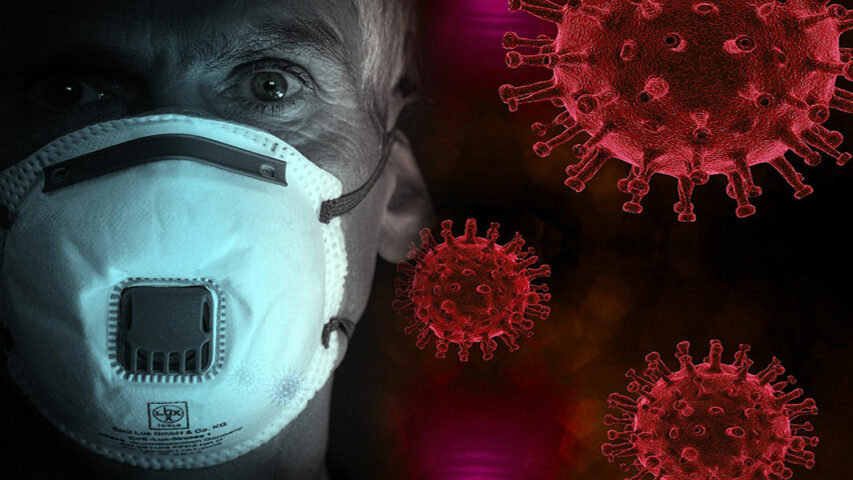- Have any questions? Contact us!
- info@dr-rath-foundation.org

Did Vaccine Scientist ‘Thrown To His Death’ Have Proof Of Wuhan Lab Leak?
June 21, 2023
Maternal Vitamin D Deficiency Found To Increase Lifetime Diabetes Risk In Offspring
June 29, 2023Adverse Effects of Face Masks CONFIRMED

Face masks have been widely used during the COVID-19 pandemic, in many cases enforced by law. While they are claimed to be effective in reducing the transmission of the SARS-CoV-2 coronavirus, studies examining their adverse effects have yielded inconsistent conclusions. Acknowledging this, a new study carried out by researchers in China evaluates the cardiopulmonary effects of N95 masks, which are said to offer the highest level of protection against viruses. The findings reveal that mask use has significant negative effects, potentially even increasing the risk of cardiovascular diseases and overall mortality.
Published in the JAMA Network Open journal, the study takes the form of a randomized clinical trial involving 30 healthy participants. Analyzing the cardiopulmonary effects of N95 masks when worn over a period of 14 hours, the experiment was conducted in a metabolic chamber so that the participants’ calorie intakes and physical activity levels could be strictly controlled.
The results show that wearing N95 masks for as little as one hour resulted in a decrease in respiration rates and blood oxygen levels. Over a period of 14 hours, the masks caused significant increases in blood acidity, heart rates, and blood pressure. Mask-induced cardiopulmonary stress was further increased when the participants undertook light-intensity exercise. Energy expenditure and fat oxidation were also elevated during exercise.
The researchers caution that although healthy individuals can compensate for the cardiopulmonary stress induced by face masks, other populations, such as elderly individuals, children, and those with cardiopulmonary diseases, may experience difficulties. Prolonged cardiopulmonary stress, the researchers suggest, could potentially even increase the risk of cardiovascular diseases and overall mortality.
The widespread failure of COVID-19 public health policies
While N95 masks are claimed to offer the highest level of protection against viruses such as SARS-CoV-2, some health officials dispute this saying there is not enough evidence to suggest they protect vulnerable people. Testing this, a report published by the UK Health Security Agency in March 2023 examined whether wearing N95 masks protects people at higher risk from becoming seriously ill with the virus. Notably, the report authors were unable to find even a single study providing data to prove the intervention’s efficacy.
But the use of face masks is far from being the only public health policy whose effectiveness against COVID-19 is highly questionable. A study published in January 2022 by researchers at Johns Hopkins University in the United States found that lockdowns only prevented 0.2 percent of deaths from the coronavirus. Examining a total of 34 previously conducted studies, the researchers were unable to find any evidence that lockdowns, school and border closures, confining people to their homes, or limiting public gatherings had a noticeable effect on COVID-19 mortality.
Based on their analysis, the Johns Hopkins researchers recommend that, given the “devastating effects” of lockdowns, they should be “rejected out of hand as a pandemic policy instrument.” Revealingly, border closures were found to be even less effective in saving lives than the lockdowns themselves, with mortality rates being reduced by just 0.1 percent.
Science-based solutions to COVID-19
The failure of COVID-19 public health policies additionally extends to the vaccines used against the pandemic. Serious side effects reported in connection with the mRNA vaccines produced by Pfizer, Moderna, and other companies now include liver damage; very low platelet counts (thrombocytopenia); high rates of severe, potentially life-threatening allergic reactions (anaphylaxis); inflammation of the heart muscle (myocarditis); blood clots (thrombosis); and even death.
Significantly, therefore, while essentially ignored by the mainstream media, science-based solutions for controlling the pandemic do exist. Scientists working at the Dr. Rath Research Institute in California have developed a specific combination of plant extracts and micronutrients that is proven to be effective against not only the original SARS-CoV-2 coronavirus but also its Alpha, Beta, Gamma, Delta, Kappa, and Mu variants. Based on its unique approach, the combination has recently been awarded a patent by the United States Patent and Trademark Office.
Together with the clinical evidence that high-dose intravenous vitamin C greatly reduces mortality from COVID-19, the widespread use of science-based natural health approaches could have brought the pandemic under control without the need for draconian public health measures such as mandatory face masks, experimental vaccines, and lockdowns. Before the much-trumpeted ‘next pandemic’ is announced, governments and public health officials clearly have some valuable lessons to learn.



